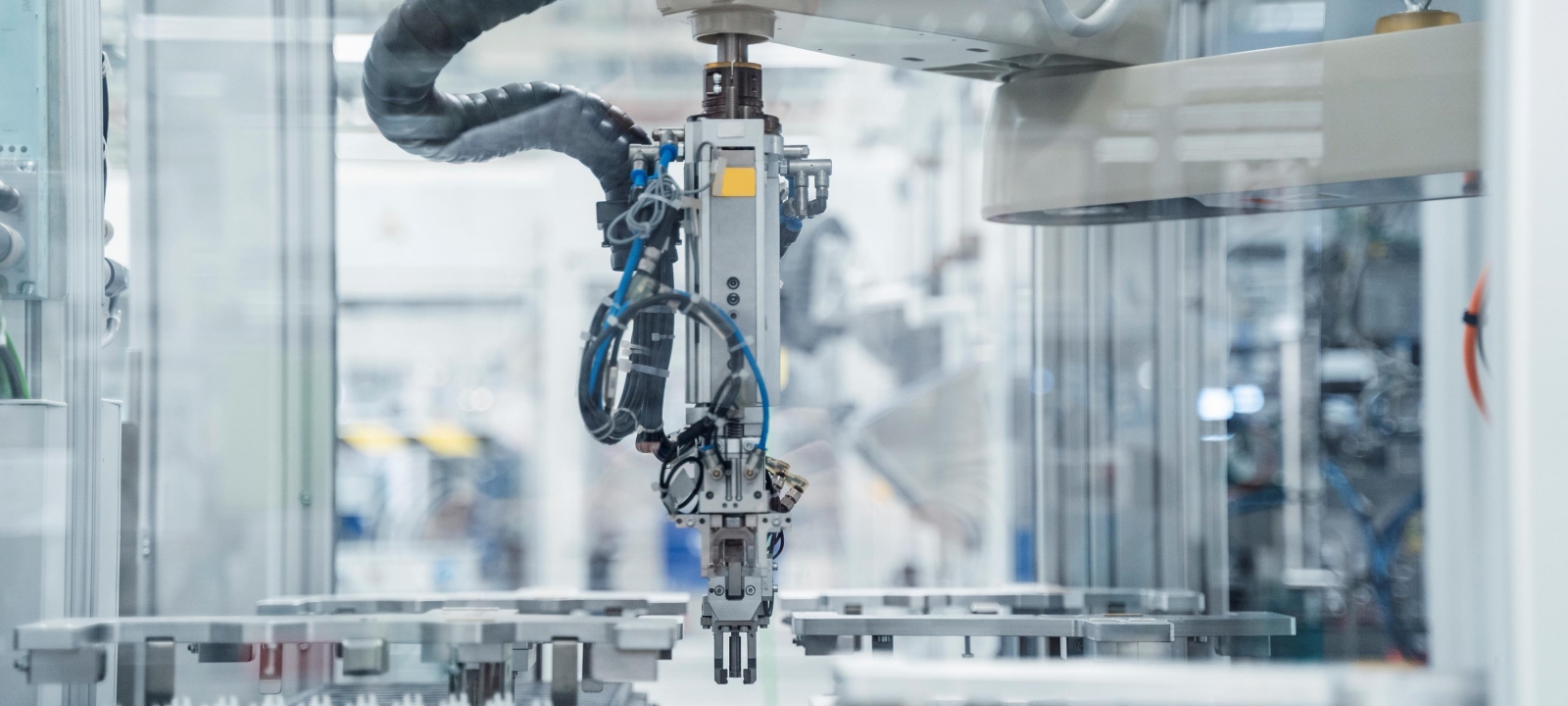The world is on the precipice of a technological revolution that will alter the way we live, communicate, and think about privacy and security. With recent innovations in automation, artificial intelligence, and virtual reality, organizations have new, unprecedented ways of reaching and serving consumers. And individuals also have novel, technologically sophisticated ways of interacting with each other and viewing the world around them. This brave new world — known as the Fourth Industrial Revolution, or Industry 4.0 — promises technological advancements. But along with these comes a need for new means of approaching cybersecurity and online safety.
Introduction: Industry 4.0 and Cybersecurity in the Modern Age
Between the mid-eighteenth century and today, human society has experienced four major industrial revolutions. The First Industrial Revolution found ways of using water and steam power to mechanize production and improve transportation. The Second Industrial Revolution—referred to as the Technological Revolution—turned electric power into a means of mass production. And the Third Industrial Revolution—or Digital Revolution—benefited from advancements in supercomputing and information technology to automate production.
Now, the Fourth Industrial Revolution is building on the Third through the fusion of complex technologies and novel concepts to push mass production and the consumer experience to new heights. Essentially, Industry 4.0 is concerned with automation, cloud computing, the Internet of Things, and machine learning to streamline many processes across every major industry: from healthcare and automotive manufacturing to social media and home security.
Although there are innumerable benefits to living through the Fourth Industrial Revolution, there are certain risks that we all take when we transmit information through the cloud. Manufacturers and companies who transmit sensitive business and customer information through cloud systems take even bigger risks, such as malware and cyber attacks. The more information that relies on cloud computing and automation a company uses, the more these organizations can lose if they are victims of cyber crimes. Put simply, Industry 4.0 and cybersecurity cannot be thought of as separate for businesses or consumers.
How are Industry 4.0 and Cybersecurity Connected?
Your daily life may already be benefiting from the Fourth Industrial Revolution without you even realizing it. Although there are many factors involved in Industry 4.0, there are some main concepts and associated issues about Industry 4.0 and your cybersecurity that we should be aware of.
The Internet of Things and Data

The Internet of Things (IoT) is a network of connected physical objects—devices, vehicles, buildings, and other items—which are embedded with electronics, software, sensors, and network connectivity. These sensors allow the collection and exchange of data. The IoT permits objects to be sensed and controlled remotely across existing network infrastructure without requiring human-to-human or human-to-computer interaction.
These devices can be used in a variety of applications, such as home automation, smart cities, healthcare, and manufacturing. Many industries and individuals benefit from increased efficiency and effectiveness brought about by the IoT. For instance, manufacturers rely on the Internet of Things for their daily operations.
Workers in Amazon’s fulfillment centers use smart devices such as tablets and phones connected to a Wi-Fi signal to locate and scan products to be shipped. Companies such as Amazon, Apple, and Google depend on their employees to understand cybersecurity and the importance of keeping their devices up to date to stay secure and safe while at work.
Cloud Computing in Industry 4.0
Cloud computing is a type of computing that relies on sharing computing resources (a network of remote servers) rather than having local servers or personal devices to handle applications. This type of computing lets users access applications, data, and services from any location and on any device, without having to install the applications or manage the data on their own computers. Common cloud-based systems are Google Drive and iCloud.
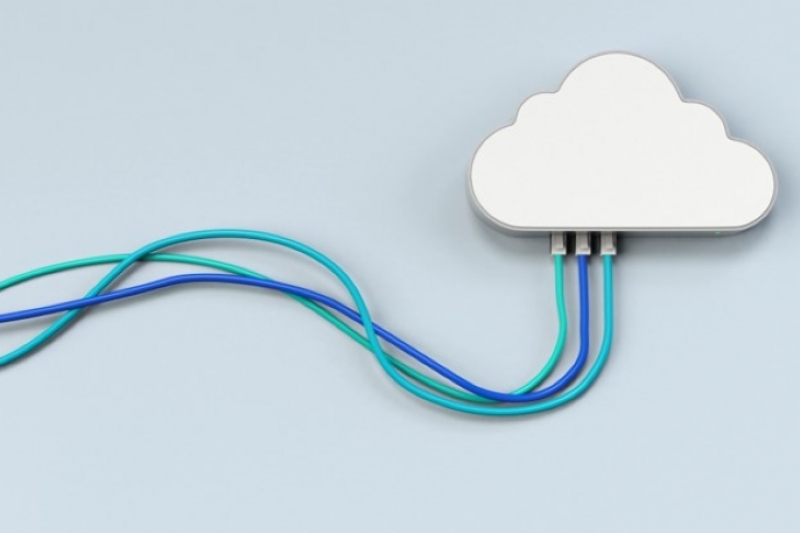
Many companies and organizations rely on cloud computing to enable the sharing and circulating of resources easily and efficiently. Therefore, cloud services in Industry 4.0 and cybersecurity need to be considered simultaneously. Take, for instance, the healthcare system, which must meet strict data information policies such as The Health Insurance Portability and Accountability Act (HIPAA). Hospitals, clinics, and pharmacies all share highly sensitive information about patients, which must be kept secure and private.
That’s where Industry 4.0 and cybersecurity meet. Features like two-factor authentication and secure password rules ensure that healthcare providers meet regulations while patients feel safe sharing information with doctors and pharmacists.
"The Fourth Industrial Revolution represents a fundamental change in the way we live, work, and relate to one another. It is a new chapter in human development, enabled by extraordinary technology advances crossing the physical, digital, and biological worlds."
Cyber-Physical Systems
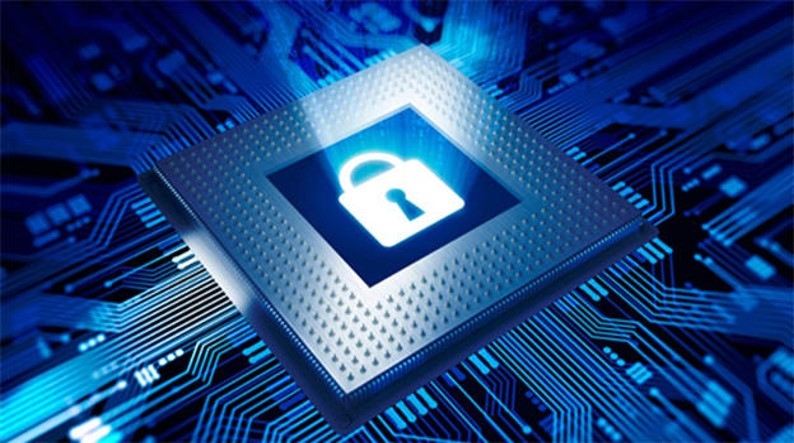
This photo, by an unknown author, is licensed under CC BY-SA-NC
Cyber-physical systems (CPS) integrate computational algorithms and physical components to enable the monitoring and control of physical systems. Some examples of CPS include factory robots, self-driving cars, unmanned vehicle systems, medical devices, and smart grids. Cyber-physical systems that integrate networks of physical and computational components are often used in industry to streamline the manufacturing process.
Manufacturing is the second-most attacked industry in the world. And the combination of physical and automated technology introduces more risks to an already-at-risk industry. The most common cybersecurity challenges in the manufacturing industry include malware and ransomware attacks, denial of service attacks, and data breaches.
Manufacturers in the Fourth Industrial Revolution, then, must ensure that their networks and systems remain secure, that data is encrypted, and that all connected devices are properly patched and updated to reduce the risk of a successful attack.
Automation
With the rise of automation in the supply chain, as well as in consumer products like automobiles and smart devices, Industry 4.0 and cybersecurity are intimately connected.
Automated systems in Industry 4.0 work to connect previously unconnected systems through hardware and software integrations. They impact how humans make decisions. And they can even make our roads safer and our air cleaner thanks to innovations such as efficient automated delivery trucks. These systems demonstrate Industry 4.0 solutions to human error and interference.
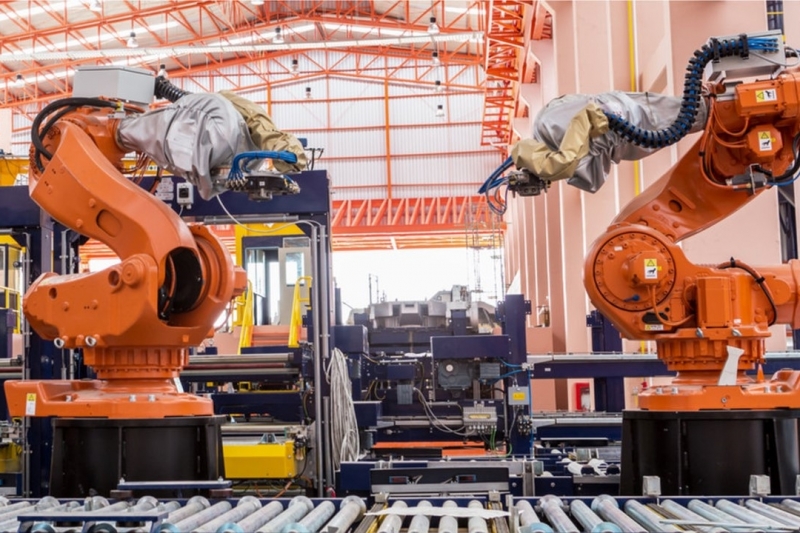
This image, by an unknown author, is licensed under CC-BY-ND.
But, again, if we are going to relay on self-driving cars and trucks or automated manufacturing processes, manufacturers and companies must develop and adopt upgraded software systems to keep their products and customers safe.
Read About Robots in the Workplace
Virtual Reality
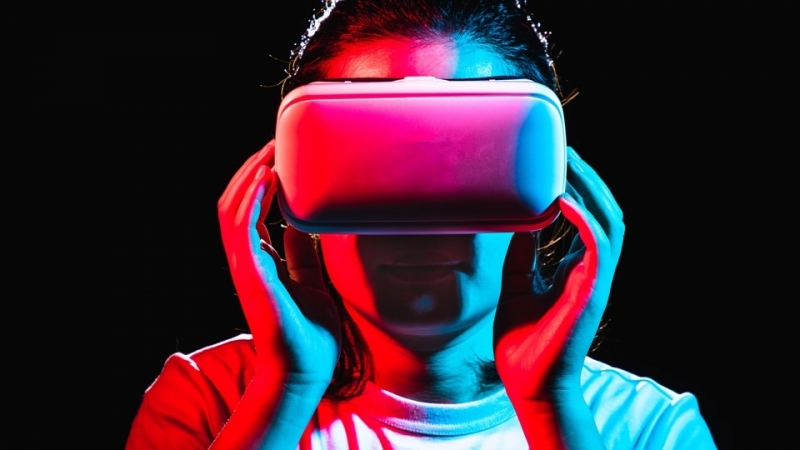
Virtual reality (VR) Is a computer-generated simulation of a 3D environment that users can interact with in a seemingly physical way by using special electronic equipment, such as a helmet with a screen and gloves fitted with sensors. VR is used in games, movies, and even healthcare to immerse users in a virtual world.
The recent creation of the metaverse, which uses VR technology to simulate environments for individuals to connect with one another, stresses the need for cybersecurity methods to protect every user—from children to adults.
With the increasing use of biometric data such as retina scans, fingerprinting, facial recognition, and voice recognition to access and create virtual avatars, there is more information about individuals being shared through possibly unsecured channels. Cyber criminals can even hack into VR systems to steal credit card information or record your screen and voice. Thus, Industry 4.0 and cybersecurity measures like data encryption and strict moderation need to go hand in hand.
What Can You Do To Ensure Cybersecurity In Industry 4.0?
You might be wondering, “What is Industry 4.0 going to do for careers in technology and cybersecurity?” The answer is: a lot! As the world advances in Industry 4.0, there will be more demand than ever for skilled and detail-oriented cybersecurity experts throughout every industry in the world. Whatever your interests are, you can find a rewarding career in industry 4.0 and cybersecurity.
Manufacturing
- Cybersecurity analyst solutions engineer
- Digital manufacturing cybersecurity resilience lead
- Director of quality assurance in cybersecurity
- Cybersecurity expert in Research and Development
- Industrial control systems cybersecurity engineer
- Global manufacturing infrastructure and information security expert
- Smart manufacturing engineer
Health Care and Insurance
- Healthcare information security analyst
- Healthcare information security engineer
- Compliance and privacy analyst
- Medical risk consultant
- Compliance analyst
Cloud Computing
- Cloud cybersecurity architect
- Cybersecurity engineer
- Cybersecurity vulnerability analyst
- Cloud cybersecurity operations analyst
Automotive
- In-vehicle cybersecurity engineer
- Transportation cybersecurity researcher
- Automotive cybersecurity engineer
- Autonomous and electric vehicle cybersecurity engineer
- Automotive Cybersecurity Architect
- Automotive Cybersecurity Technician
- Automotive Cybersecurity Risk Specialist
Social Media
- Ethical AI engineer
- Chief Information security officer
- Incident response expert
- Intrusion detection analyst
- Security Awareness officer
Choosing the Right Program for Industry 4.0 and Cybersecurity
Cybersecurity experts and information security analysts are among the fastest growing career fields in the country, with the United States Bureau of Labor Statistics predicting job growth 35 percent over the next decade. That’s more than triple the average growth for all other occupational fields in the U.S. There has never been a better time to explore undergraduate, graduate, and certificate programs to help you begin an exciting career at the vanguard of the Fourth Industrial Revolution.
How Long Does It Take To Earn a Degree for a Career in Industry 4.0 and Cybersecurity?
The time that it’ll take you to earn a degree for a career in cybersecurity or a related field varies greatly, depending on your past education and professional experience, as well as the career you are interested in. Earning a bachelor’s degree can take about four years and will prepare you for entry-level careers in Industry 4.0 and cybersecurity jobs.
If you already have a bachelor’s degree, but you aren’t sure whether you want to dedicate the time and energy to a master’s degree, a graduate certificate might be ideal. It will give you foundational knowledge in advanced topics and it takes less time to complete—as few as two semesters—than a traditional graduate degree. Best of all, you can easily earn a certificate while working full-time and caring for your family.
For aspiring cybersecurity professionals looking for promotion in their current organizations or hoping to transition into the field while earning a high salary, earning a graduate degree in information technology or cybersecurity may open many doors to high-paying and impactful leadership positions in Industry 4.0 and cybersecurity. A typical graduate degree takes about two years of full-time courses.
Take the Next Step: Prepare for Industry 4.0 and Cybersecurity at Michigan Tech.
At Michigan Technological University, we design our academic programs with an eye always on the future, continuing our century-and-a-half tradition of helping engineers become innovative and creative thought-leaders. In fact, one of the main missions of Michigan Tech is confronting the challenges and opportunities of Industry 4.0. For students interested in cybersecurity fields, we offer several degree and certificate programs to help you achieve your career goals.
Our cybersecurity bachelor’s degree prepares students to prevent, detect, and fight cyber crimes in many fields. Students in the bachelor’s degree program can focus on software security or system and network security, depending on their skills and career interests.
MTU's Online Foundations of Cybersecurity is 9-credit certificate in which students will learn to identify and describe the foundational principles of securing both a computer system and a computer network. They'll also study the foundational principles of secure software development and apply them effectively.
Our Master of Science in Cybersecurity and accelerated master’s program are the only programs in Michigan of their kind. Students can choose three options for their MS in cybersecurity, including thesis, report, or coursework—depending on what careers they wish to enter after graduation.
As a student preparing for Industry 4.0 and cybersecurity at MTU, you’ll also have access to exclusive organizations dedicated to fostering community and a security-driven world. These include the MTU RedTeam—which participates in national competitions every year—and the Center for Cybersecurity, a dedicated group of computing experts preparing the field for the cybersecurity challenges of Industry 4.0.
For working professionals looking to increase their earning potential and earn promotion, we offer many online graduate programs related to Industry 4.0 and cybersecurity, including our MS in Health Informatics, our Security and Privacy in Healthcare Certificate and our Safety and Security of Autonomous Cyber-Physical Systems Certificate, among many others.
Explore all of Michigan Tech's Online Programs.
